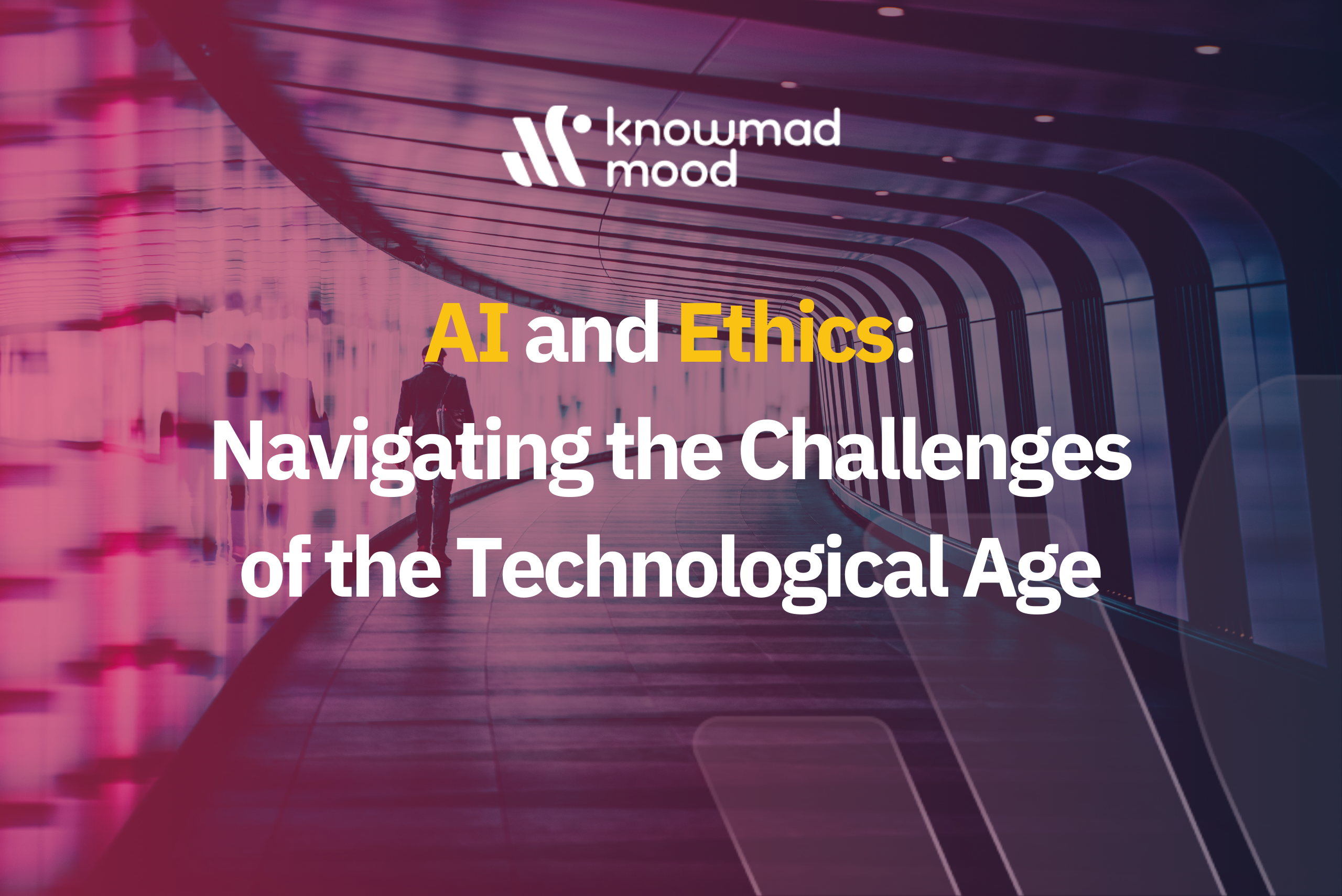
AI and Ethics: Navigating the Challenges of the Technological Age
Artificial Intelligence (AI) is transforming every aspect of our lives, but its progression poses significant ethical and regulatory challenges that leave no one untouched.
This article explores these challenges, highlighting real examples and discussing the potential consequences of regulation in this field. Moreover, we will update information by elaborating on each challenge. But first let’s start with the basics.
What is ethics in AI?
Ethics in AI refers to the moral principles and guidelines that govern the use and development of artificial intelligence systems. These rules seek to ensure that the technology is developed and used responsibly. AI ethics, therefore, is intimately tied to the regularization of AI and the creation of a consensual and joint framework of law, practices, and recommendations.
It is not surprising that the European Union and its member countries are in the race to regulate this technology, given the great impacts that are expected from it, many of them great, but also with consequences that must be anticipated and avoided, consequences that we are already experiencing today.
Bias inherited from algorithms
AI, powered by human data, can inherit, and amplify pre-existing biases, leading to discriminatory decisions. Carrying with it the potential to perpetuate and amplify existing biases.
These biases can manifest themselves in areas such as job recruitment, where algorithms can favor certain groups over others based on historical data.
A prime example is Amazon’s recruiting system, which showed bias against women and their hiring.
Autonomous weapon systems
The ability to conduct unattended attacks brings serious ethical questions about warfare and the use of force. Intelligent military drones, for example, have been the subject of debate because of their ability to conduct attacks with little human oversight, as is occurring in the war in Ukraine and Russia, where they have become one of the primary armaments. In this example, technological advances sadly related to warfare are perpetuated at the cost of human lives, with undoubtedly the ethical and moral implications that this entails.
The new European AI law seeks to mitigate these risks by requiring transparency and fairness in AI systems.
Indiscriminate surveillance of citizens
With AI, surveillance has become more pervasive and sophisticated, posing risks to individual privacy. A notable case is the use of facial recognition technologies in China, which have raised concerns about population tracking and monitoring to unsuspected levels.
This is also one of the regulations that are being tackled in the new European legal framework to minimize their impact on the privacy and freedom of citizens.
Systems control management
Determining who controls and supervises AI systems is a major problem that is difficult to resolve. Lack of clarity in the management and control of these systems can lead to abuses or misunderstandings, as seen in incidents where autonomous vehicles have been involved in accidents, such as the case of a Cruise autonomous car perpetrating a hit-and-run.
Rising inequality
Like The Industrial Revolution, which marked a dramatic transition from agricultural and artisanal societies to industrialized and mechanized societies, the AI revolution may increase the socioeconomic gap. Automation may replace jobs, disproportionately affecting lower-skilled workers.
The ” digitization ” of employment is an example, where technological skills become indispensable, leaving behind those who do not possess them. An example of this is the robotization of vehicle assembly lines such as BMW, displacing operators who used to perform these tasks and forced to look for a new way of making a living, which in not all cases, will be at all simple or feasible.
Lack of accountability for the results of their actions
AI poses challenges in terms of liability. Who is responsible when an AI system makes an incorrect or harmful decision? The controversy surrounding accidents involving autonomous vehicles from UBER, as we have seen above, or Tesla, is an example of the complexity of attributing liability.
When an autonomous vehicle is involved in an accident, it is difficult to determine who is responsible. Is it the driver, who perhaps was not paying due attention despite being in control of the vehicle? Is it the vehicle manufacturer, for possible defects in the AI software? Or is it the AI system itself?
The complexity of AI systems makes it difficult to understand and explain why certain decisions were made, further complicating the attribution of responsibility.
Generation of compelling disinformation, cybercrime.
The illicit use of AI is creating convincing misinformation, such as deepfakes, which are increasingly difficult to detect. This poses major challenges for information integrity and verification of the veracity of information, creating a very daunting misinformation landscape, where individuals and users become the means of deepfake dissemination and viralization with the major social repercussions it can entail.
In addition, cybercrime has become more sophisticated with the use of AI, using it creatively for new very credible scams, being very complex to detect. An example of this is in 2019 when an employee of a large UK energy company, believed to be contacted by its CEO through a phone call with the voice of the executive, in which he asked him to make an economic transfer more than 200,000 pounds.
To conclude with this first article on how the new era of Artificial Intelligence presents a complicated landscape to balance, where technological wonders coexist with ethical and regulatory concerns.
From biases in algorithms to privacy and liability issues, we face a reality where every advance brings with it critical questions. Confronting the dilemmas of AI requires harmonizing technological innovation with ethical considerations, ensuring sustainable and conscious progress in the knowledge that it will be constantly evolving at breakneck speeds.
Author: Berta Molina, Marketing specialist

